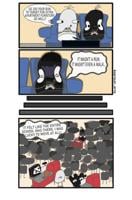Two weeks ago, I wrote about the alarming rate of homelessness among NC State students based on a study led by NC State psychology professor Mary Haskett in the fall of 2017. It showed that roughly 10% of students experienced some form of housing insecurity in the 12 months prior to the study and about 15% were food insecure.
Haskett and her team have since shared new data that accounts for how the pandemic has exacerbated this issue and made it all the more crucial to address. It now shows that 15% of NC State students experienced homelessness during the pandemic, and a whopping 25% had experienced food insecurity in the past 30 days.
The report emphasizes how campus conditions during COVID-19 added insult to injury for an already-vulnerable portion of the student body. When campus suddenly closed last March to mitigate the spread of the virus, access to residence halls, meal plans and student services was lost with virtually no safety net in place to support those who would inevitably fall as a result. Many were also put at risk by the closure of nearby small businesses and the subsequent job loss for students working in the service industry.
It was enough to make even those considered financially secure struggle, let alone the 10% of students who already lacked access to basic needs without the help of the pandemic. As per my last column on the subject, even normal conditions on college campuses made it notoriously difficult for students to make ends meet. High cost of attendance, housing and an unlivable minimum wage ensure that only the privileged graduate without debt and without having to compromise on basic necessities.
Yes, this reality threatens student health and safety, which is reason enough to work to eliminate it, but it’s not the only reason why our institution needs to take action.
The new report shows that during the pandemic, 81% of students agreed that their ability to learn had been negatively impacted by heightened instability. The challenges presented included “difficulty studying and engaging in classes, reducing credit hours, experiencing increased stress associated with technology and wifi, and earning lower grades than usual.”
This issue was found to be highly associated with food and housing insecurity, with 90% of those impacted by homelessness reporting learning difficulties as a product of their situation. It’s a problem of equity; as it stands, not all of NC State’s student body has a fair shot at academic success. Housing assistance for those impacted by the pandemic and existing difficulties with attending a four-year institution would remedy that fact and help to level our school’s playing field.
A call to action published by the Pack Essentials Steering Committee in 2019, of which Haskett is co-chair, proposes that we bolster our safety nets through a variety of programs and infrastructure. They cite many existing programs run by other universities that NC State can stand to implement, including, but not limited to, emergency grants, shelters, short-term and cost-free housing and partnerships with community nonprofits that provide housing assistance.
What seems to work best, though, is a “housing first” approach. Not having a reliable place to dwell and rest is a huge barrier for students’ success. When you eliminate that barrier, you provide a foundation to build a stable life upon. Just look at the city of Houston; by placing those in need in permanent, affordable housing as opposed to shelters or hotels, its homeless population was reduced by 75%. After they are placed in their homes, families are provided services that help to secure employment and manage finances, among other things. Not only is this approach more successful in providing stability, it also costs the city $9,000 less per person to initiate than its more temporary provisions.
If our school would offer long-term, sustainable, affordable housing outright for those experiencing housing insecurity, maybe we could achieve the same results for the student body. The pandemic has shown us that the minimum isn’t enough anymore, we need to do better.




(0) comments
Welcome to the discussion.
Log In
Keep it Clean. Please avoid obscene, vulgar, lewd, racist or sexually-oriented language.
PLEASE TURN OFF YOUR CAPS LOCK.
Don't Threaten. Threats of harming another person will not be tolerated.
Be Truthful. Don't knowingly lie about anyone or anything.
Be Nice. No racism, sexism or any sort of -ism that is degrading to another person.
Be Proactive. Use the 'Report' link on each comment to let us know of abusive posts.
Share with Us. We'd love to hear eyewitness accounts, the history behind an article.